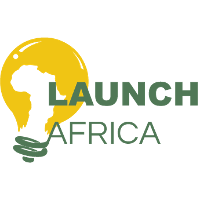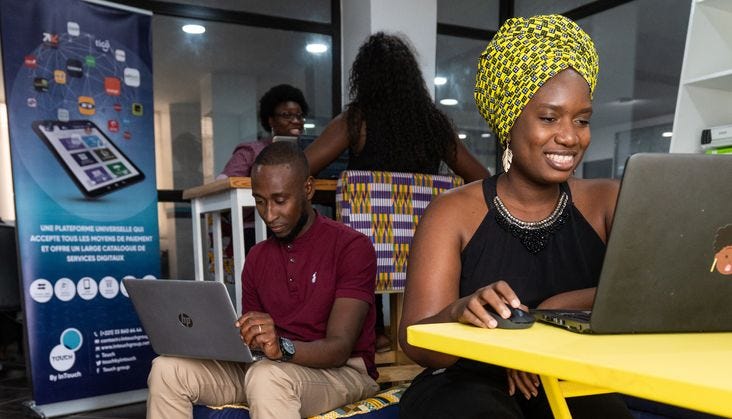Africa's most active VC (Interview)
Zach George is the Managing Partner at early-stage VC fund, Launch Africa Ventures. He’s also the co-founder of Startup Bootcamp Afritech, one of the leading accelerators on the continent. Needless to say, he’s an influential voice in African startup circles. This week I sat down with Zach to learn more about his VC fund which he launched in June last year and to get his thoughts on the state of African entrepreneurship.
You’re originally from India, completed your Masters at Stanford and then went to work on Wall Street for a number of years. How did you end up in Cape Town as a VC?
I came to South Africa during the football World Cup in 2010 for a 6 week holiday. I had heard murmurings of an emerging tech scene in Cape Town similar to that of the Bay area. A lot of friends of mine when I lived in New York City had mentioned that there is this incredible city called Cape Town where a number of the World Cup games are taking place and that I should check it out.
It’s got the rumblings of Silicon Valley, but at a nascent stage. At the time I was working as an investment banker, and was looking to make a move into the startup world.
So I came down here and enjoyed the World Cup games but at the same time I saw some of the similarities between Cape Town and Silicon Valley, and fell in love with the place.
So in a moment of spontaneity I decided to make Cape Town home. However I didn't start off as a VC. I said instead of raising a fund you need to pave the road before you can start driving down it. So my initial years in Cape Town were spent building the startup ecosystem.
How did Launch Africa Ventures come about?
Launch Africa Ventures is just an extension of the work I was doing at the accelerator, Startupbootcamp, with my co-founder Phillip. We launched the fund in June 2020. We build on the good work that accelerators as like Startupbootcamp Y-Combinator, Techstars and Flat6labs have done for founders.
When these founders need their first institutional cheque outside of just friends, family and Angels, instead of having to wait for a Series A round which typically only happens when you're doing north of $100K in monthly revenue you now have institutions that can come on a lot earlier and be part of seed rounds.
If the only reason why a startup fails is due to the lack of funding, that's a pity. If a startup fails because they cannot find product-market fit that's understandable. But if they get traction in the market and simply fail to do lack of capital, that a real shame, and that’s what we want to avoid happening on the continent. That’s why Launch Africa Ventures exists.
What’s your investment criteria?
To date we’ve backed 56 companies but we’re very selective in who we back. We have a strong preference for companies who have emerged from world-class accelerators. We are both sector and product agnostic but we have an affinity for companies that have a B2B or B2B2C business model where there is proof that you can deliver a quality service to a bank, telco, retailer or insurer.
We look at companies that are beyond the ideation/MVP stage, ideally doing at least $20K monthly revenue. Finally we strongly favour companies that plan to expand beyond their home markets within 12 months of us investing.
What’s your investment strategy?
Because we invest very early we aren’t limited by startups having a defined path to exit, be it going public in the capital markets or being acquired. Exit horizons for startups range from 5-10 years. Our fund is a 7 year fund, so our exit strategy is selling selective stakes in our portfolio companies, either fully or partially when they raise subsequent rounds of funding.
What’s the role of the VC in the startup ecosystem?
It's important for VC’s to add strategic value outside of their investment. For every dollar you put into a company, how many dollars are you adding in value? That means access to other investors in a round and access to future investors in follow on rounds.
It also ties into recruitment and expansion. How can you help a startup with talent acquisition. How do you help founders expand into new geographies? How do you help founders with corporate partnerships? There is a lot of non-financial value that VC’s should be adding to startups. However, I don’t think too many VC’s in Africa do that.
If we look at the 5 unicorns that have come out of Africa to date, 4 of them are fintechs. Why do you think fintech companies are so far ahead of other startups on the continent when it comes to revenue and valuations?
Yes, fintech tends to get a lot of the attention because a lot of the most valuable companies in Africa today are payment companies that started in 2014-2016 and 5 years later have reached terminal velocity. It’s the natural law of progression.
Africa needed to have a strong and stable financial and regulatory environment for people and businesses to pay and get paid. Once that was sorted, then you could look at creating companies that solve problems in other sectors.
The majority of startups coming out of these world-class accelerators tend to be incorporated abroad - either in the US, Europe and more recently Singapore. Is international incorporation an important factor for you when making an investment in a startup? If so, why?
Yes. If you’re incorporated in Nigeria or Kenya for example it’s very difficult for you to scale to other countries if your holding company is in one particular African country.
You have to think about future rounds of funding - international investors will be more partial to investing their money in a startup incorporated in the US or the UK where there is less currency risk, geo-political risk, IP risk, and repatriation of funds risk. Almost all of our 56 portfolio companies are incorporated off-shore.
You can listen to the full interview with Zach here.
In the news 🚀
🇳🇬 Nigerian e-commerce startup, OurPass ,has announced a $1 million pre-seed round as it launches its mobile app that provides a seamless and secure way to shop online.
🇪🇬 Kashat, a fintech startup from Egpyt has raised a $1.75 million bridge funding round to grow its platform further.
🇪🇬 Egyptian B2B e-commerce startup, Capiter, has raised a $33 million Series A funding round to drive rapid expansion into financial services and additional markets.




